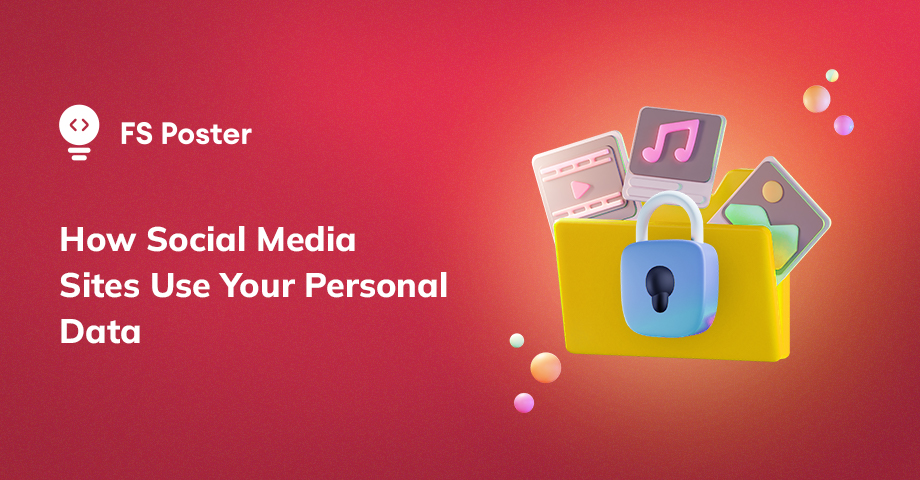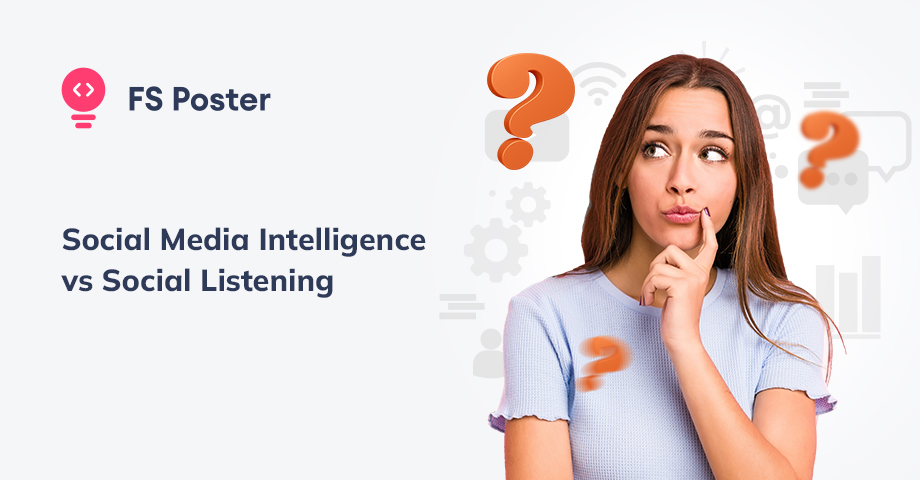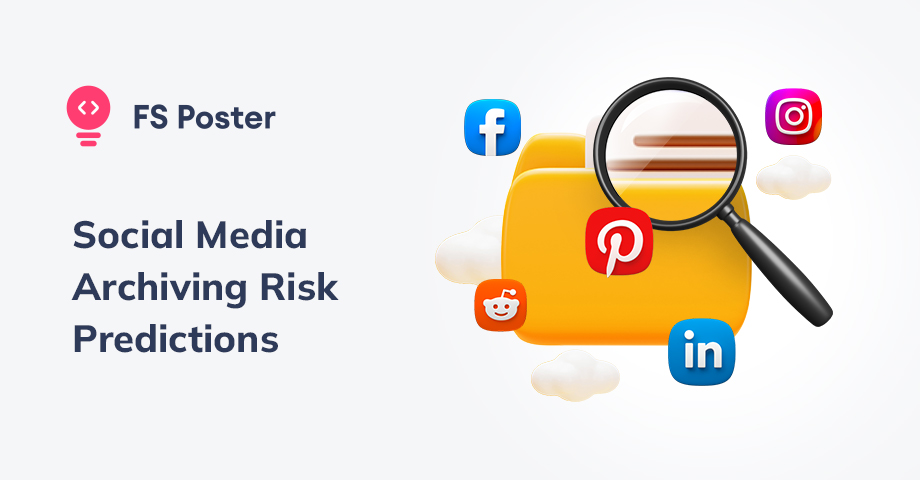
Saritel Abbaszade
Author
Did you know that the information and content you share on social media can be used in ways you might not expect? Major social networking platforms collect, store, process, and share your data in various ways.
Whether it's a quick post about your morning coffee or simply liking someone's photo, every action generates data that is used for purposes like analytics and targeted advertising.
Curious about how social media platforms handle your personal data and what happens to it after you share it online? Keep reading to learn more about what goes on behind the scenes and discover tips on how to protect your privacy.
What is social media privacy, and why should you be concerned?
Social media privacy refers to your right to control how your personal information and data are shared on social media platforms. Understanding privacy settings and how they impact your online experience is essential.
However, despite these settings, data mining and scraping activities can still allow unauthorized access to some of your personal information. This can result in others using your data for purposes like targeted advertising or even identity theft.
What is social media data scraping, and how does it work?
Data scraping is a process in which automated software "scrapes" or collects data from online sources such as websites and social media platforms. It can collect information such as text, images, audio, video, and other different types of content. This collected data is then stored in a database where it can be analyzed to gain insights into user behavior and preferences.
Social media data scraping serves many purposes, including sentiment analysis to gauge public opinion on specific topics, competitive analysis to gain insights into competitors' strategies, and marketing research to identify trends and customer preferences.
Businesses can also use it to better understand their audience and create more personalized, relevant experiences.
What are the implications of using our data?
As most social media sites rely on user-generated data to generate revenue, they often monetize or sell it to third parties. This can result in new privacy issues since personal information can be used for marketing, advertising, or even malicious activities like identity theft.
It’s important to understand that any data shared on social media is likely to remain online indefinitely and may be used without our knowledge or consent.
This means companies can use our data in unexpected ways, such as tracking users who have "liked" certain posts or creating targeted ads based on our profiles and activity.
Tips for minimizing the collection of your data
The best way to minimize the collection of your data is by being aware of how social media sites use it and taking proactive steps to limit their access. Here are some tips you can follow:
- Make sure to read the privacy policies of any site you use.
- Be careful about what kind of information you post or share online.
- Regularly review your social media accounts and delete outdated posts or pictures that you don't want to be associated with.
- Turn off location sharing on all your devices so your exact whereabouts remain private.
- Adjust your profile settings to limit the amount of information that's available to third parties.
- Monitor the apps and websites you connect to your social media accounts.
- Be aware of the types of ads being targeted at you, as this may reveal what data companies have collected about you.
How to protect your online privacy?
We all have a right to online privacy, and it's important to take the necessary steps to protect our personal information. Here are some tips on how you can keep your data safe:
- Use strong passwords and two-factor authentication for all your accounts.
- Don't enter your personal information or payment details unless you're sure the website is secure.
- Monitor your online activity and delete any unnecessary cookies or data stored by third parties.
- Avoid clicking on suspicious links or ads, as they may be malicious.
- Install anti-virus software to help protect you from malware, viruses, and other threats.
- Regularly update your devices with the latest security patches.
- Be aware of what you post online and check your privacy settings regularly.
- Avoid sharing too much information on social media, as this may be used to target you with ads or other unwanted materials.
Tips for staying safe on social media
Social media can be a great way to connect with others, but staying safe and protecting your personal information is crucial. Here are some tips on how you can do this:
- Don't accept friend or follower requests from people you don't know.
- Check the privacy settings of your accounts and adjust them as needed.
- Be aware of what you post and think twice before sharing content.
- Don't share your contact information, passwords, or account details with anyone.
- Regularly review the apps that have access to your social accounts and remove any ones that you no longer use.
- Do not click on suspicious links or ads, as these may be malicious.
- Report any suspicious activity or comments that you come across.
- Don't respond to messages from people you don't know.
- Use two-factor authentication if it's available on the platform you're using.
- Limit who can view your posts and consider using the "friends of friends" setting, which provides an additional layer of security.
The future of social media data scraping
Social media data scraping is expected to become even more prevalent as companies seek new ways to understand consumer behavior. It's crucial to stay informed and protect your online privacy by using strong passwords and enabling two-factor authentication.
As technology advances, new tools and techniques will emerge, providing businesses with even deeper insights into their target audiences. When used ethically and responsibly, data scraping can benefit both companies and their customers.
The future of social media data scraping is uncertain, but companies will likely continue to rely on these tools to gain consumer insights. It's up to us to stay informed and take proactive steps to safeguard our data, allowing us to enjoy the advantages of social media while protecting our privacy.
Being vigilant and taking appropriate precautions is the way personal information stays secure in the world full of threats and bad actors.
What are the benefits of social media data scraping for businesses?
Social media data scraping can be beneficial for businesses in many ways. It can provide insights into user behavior which can help companies better understand their target audience and optimize marketing campaigns and product offerings. It can also help them identify trends and customer preferences and detect potential risk factors that may impact their bottom line. Data scraping can be used to analyze customer sentiment and engagement, track competitors' activities, and even uncover emerging opportunities in the market.
Overall, social media data scraping can be a powerful tool for businesses that are looking to gain deeper insights into their customers and capitalize on current trends.
What actions should businesses take to protect themselves from social media data scraping?
When it comes to safeguarding against social media data scraping, businesses should take a few proactive steps:
- Stay up-to-date on the latest advancements in technology and data security. Companies should also look into purchasing cyber liability insurance to cover any potential losses related to a breach in their data security.
- Businesses can create their own data security policies and procedures to ensure their customer's data is protected. They should also restrict access to sensitive data by limiting the number of people who have access to it and requiring authentication protocols for anyone who needs to view specific information.
- Businesses should be aware of third-party apps or sites that can access their customers' data and take appropriate measures to protect it from being mined by malicious actors.
Doing these things can help businesses better protect their customers' data and prevent social media data scraping.
What should you do if you discover your privacy settings aren’t sufficient?
If you feel your privacy settings aren’t sufficient, it’s important to take action to protect your data. Start by reviewing the privacy settings on each social media site or app you use and adjust them to suit your needs. When a third-party app requests access to your data, ensure it is trustworthy and only grant the necessary level of access.
Additionally, stay informed about how these platforms use your data, so if any changes arise that you’re uncomfortable with, you can take steps to restrict their access.
Conclusion
If you are wondering how social media sites use your personal data, it is essential to remember that when you create an account on a social media site, you are giving them permission to use your data. This is why it's so important to read the terms and conditions before signing up for anything online. You may be surprised at what you agree to! Stay informed and stay safe online!









